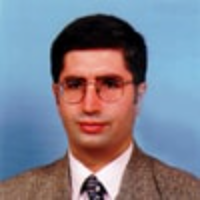Awareness of Myocardial Infarction in Nangarhar Residents: A Community Based Study
Published on: 27th August, 2024
Myocardial infarction is the leading cause of morbidity and mortality worldwide. The overall aim of the study was to evaluate community awareness about myocardial infarction.It was a community-based cross-sectional study conducted during one month including both male and female participants aged 18 years and over in Nangarhar province of Afghanistan. The percentage of awareness for risk factors was as follows: Diabetes (56.4%), Hypertension (43.4%), Elderly (42.1%), Obesity (39.8%), Physical inactivity (38.5%), Hyperlipidemia (37.6%), and Family history (33.8%). Furthermore, knowledge about symptoms and signs was as the following: chest pain (67.4%), pain in neck and jaw (57.8%), Dyspnea (50.7%), pain in arms (46.1%), weakness/fainting (40.1%), cold sweats (38.2%), nausea and vomiting (34.5%), anxiety (29.6%), fever (22.7%), hypotension/shock (20.1%), and silent myocardial infarction (11.3%). Moreover, 24% of participants did not know about the prevention strategies for myocardial infarction. Regarding treatment, 80.3% of participants exactly knew to go to the emergency room, 11.9% of participants would intend to go to a general practitioner (GP), 5.6% of participants would ask others for advice on what to do, and 2.2% of participants would wait to see if the symptoms go away spontaneously or if the symptoms were due to other diseases. The current awareness level about myocardial infarction especially atypical symptoms, risk factors, prevention, and treatment strategies in Nangarhar residents was insufficient, especially in females and healthy individuals, and warrants designing and implementing immediate awareness programs in order to avoid delay of treatment-seeking, misbeliefs about the disease and subsequent morbidity and mortality.
Poor Diet Leading to the Increasing Risk of Atherosclerosis in the World
Published on: 3rd September, 2024
Atherosclerosis Ischemic Cardiovascular Disease (ASICD), one of the leading causes of global deaths, is mainly caused due to the development of plaque on the inner walls of arteries of the human heart. Ischemia refers to the lack of enough oxygen (O2), nutrient delivery, and improper waste removal in the cardiac cells. About 90% of cardiovascular diseases in the present world are due to the formation of lipid/cholesterol-based plaques that can form under the lining of the smooth epithelial blood cells. In the US, a study published in the Journal of the American College of Cardiology estimated that poor diet is responsible for about 45% of Cardiovascular Disease. Atherosclerosis doesn’t cause much effect until and unless the plaque becomes unstable due to the accumulation of thrombus that shows Acute Coronary Syndrome. Acute Coronary Syndrome is the result of blockage of blood vessels leading to Myocardial Infarction (Unstable Angina Pectoris). Cardiac Cells require a sufficient amount of Oxygen to function properly. Thus, the demand and supply of oxygen to the cardiac cells should be properly balanced. Atherosclerosis Ischemic Cardiovascular syndrome can worsen if the person is more involved in exercise or emotional stress because at that time their body requires higher oxygen but blood flow gets disrupted due to the formation of plague. Later in the paper, we will discuss the New York Heart Association classification, followed by the top 3 poor diets that are considered to be increasing the cases of cardiovascular disease around the world.
The Inverse Relationship between Acute Myocardial Infarction and Dissolved Oxygen Levels in Water
Published on: 7th February, 2025
Stroke and acute myocardial infarction are primary global causes of mortality. Statistical studies have shown that acute myocardial infarction is responsible for around 9 million deaths each year. Ischemic stroke and myocardial infarction have a significant role in global adult physical disabilities. While reperfusion is vital for tissue recovery, it may paradoxically, inadvertently increase damage through oxidative stress, inflammation, and cell death. Early reperfusion procedures are currently the sole therapy to reduce infarct size. There are many mysteries about heart biology. It is not known the source of energy for myocardial tissues. The heart-beating force (120 mm Hg) cannot explain how erythrocytes are impelled through almost 95,000 km of capillaries in less than 5 minutes. A better knowledge of how the heart is oxygenated should allow the development of new therapies.
Browse by Subjects
Chemistry Group Journals
Pharma Group Journals
Mathematics & Physics Group Journals
Clinical Group Journals
- Archives of Food and Nutritional Science
- Annals of Dermatological Research
- International Journal of Clinical Microbiology and Biochemical Technology
- Journal of Advanced Pediatrics and Child Health
- Journal of Pulmonology and Respiratory Research
- Insights in Clinical and Cellular Immunology
- International Journal of Clinical Anesthesia and Research
- Journal of Clinical Intensive Care and Medicine
- Journal of Clinical, Medical and Experimental Images
- Journal of Neuroscience and Neurological Disorders
- Insights in Veterinary Science
- Journal of Stem Cell Therapy and Transplantation
- Archives of Asthma, Allergy and Immunology
- Journal of Child, Adult Vaccines and Immunology
- Archives of Cancer Science and Therapy
- Clinical Journal of Nursing Care and Practice
- Annals of Clinical Gastroenterology and Hepatology
- Journal of Hematology and Clinical Research
- Archives of Pathology and Clinical Research
- Annals of Clinical Hypertension
- Journal of Oral Health and Craniofacial Science
- International Journal of Clinical and Experimental Ophthalmology
- Journal of Radiology and Oncology
- Journal of Clinical Nephrology
- Archives of Clinical and Experimental Orthopaedics
- International Journal of Bone Marrow Research
- International Journal of Clinical Virology
- New Insights in Obesity: Genetics and Beyond
- Advanced Treatments in ENT Disorders
- Journal of Clinical Advances in Dentistry
- Insights on the Depression and Anxiety
- Heighpubs Otolaryngology and Rhinology
- Clinical Journal of Obstetrics and Gynecology
- Archives of Surgery and Clinical Research




